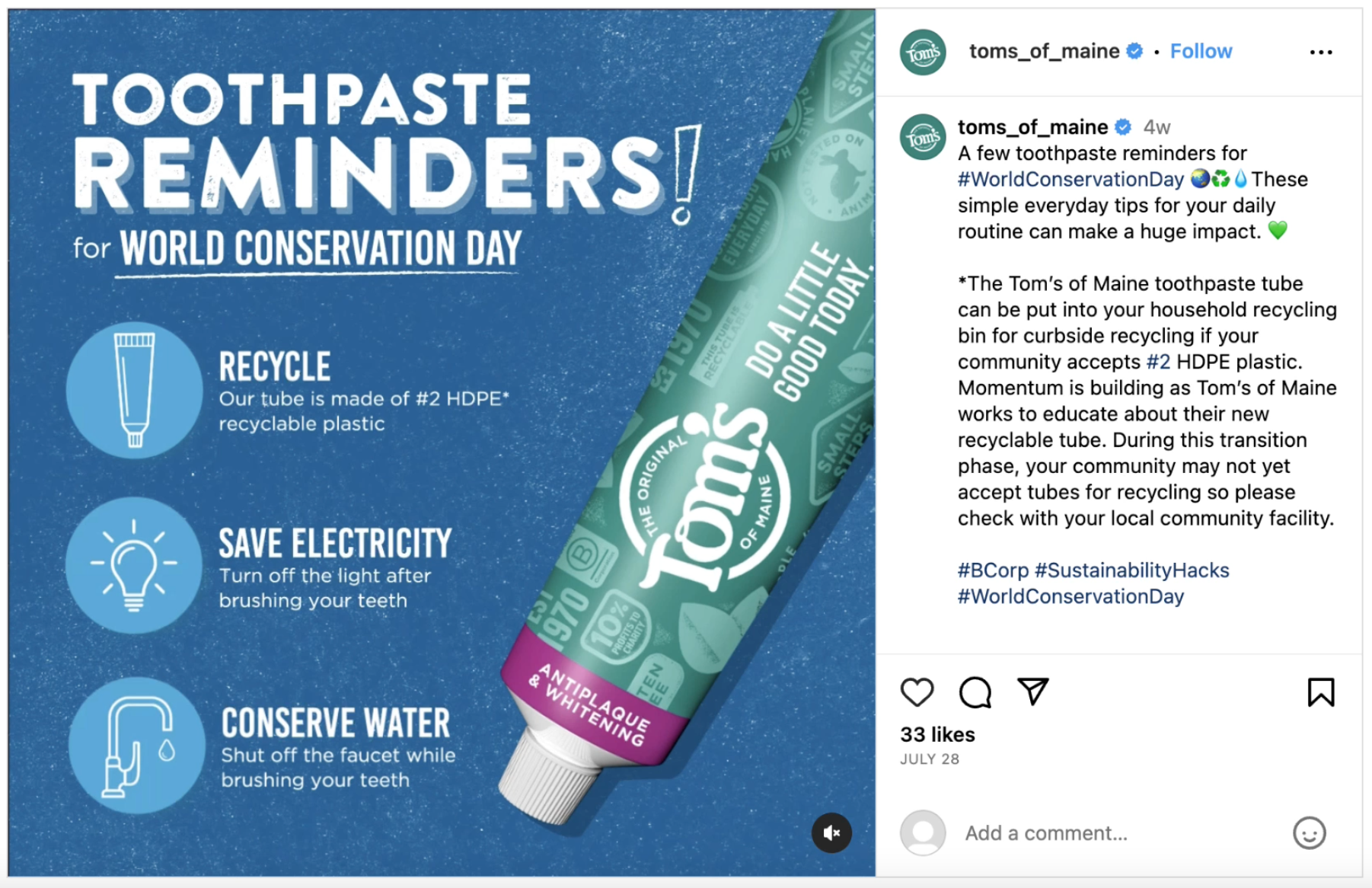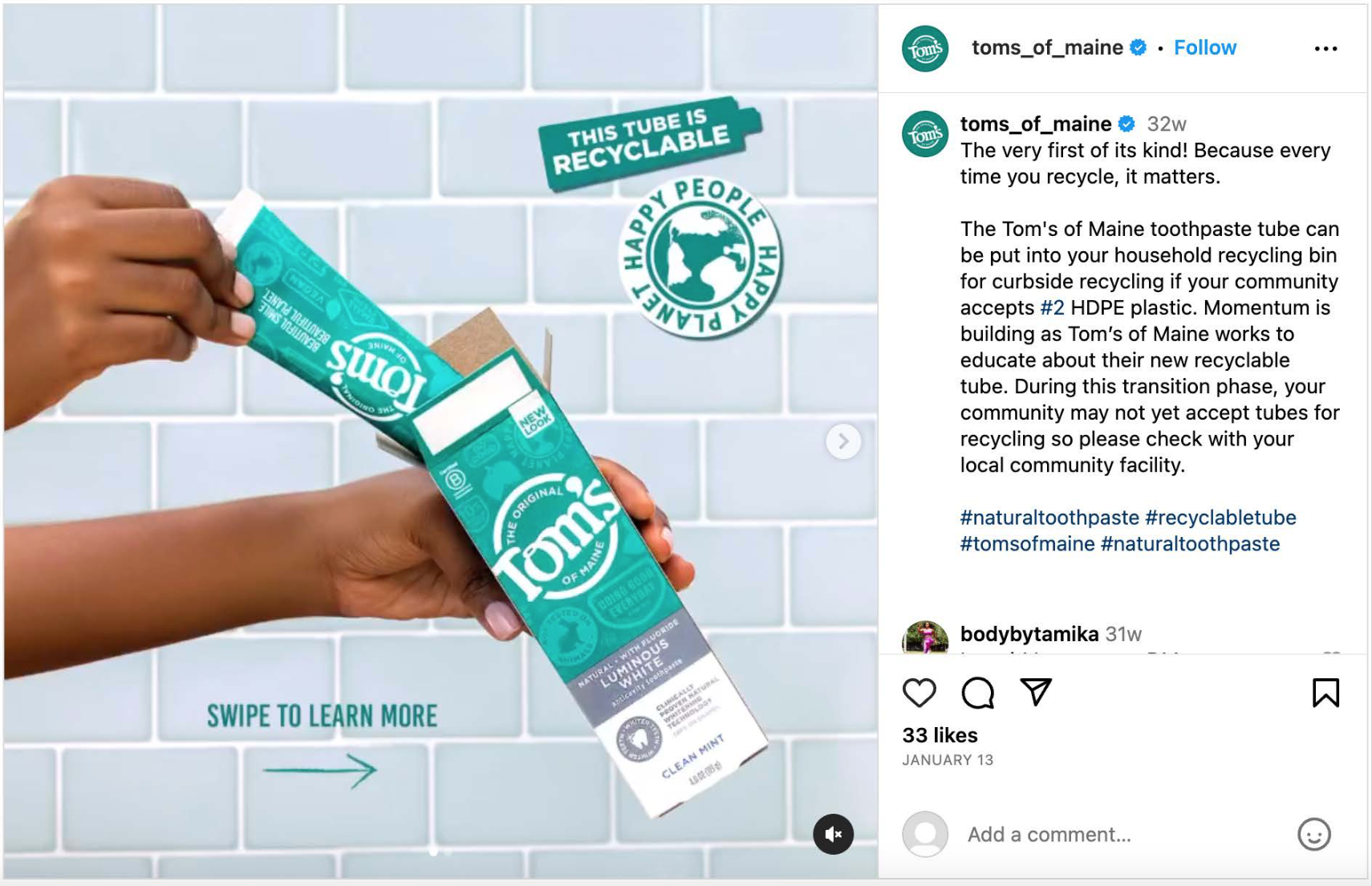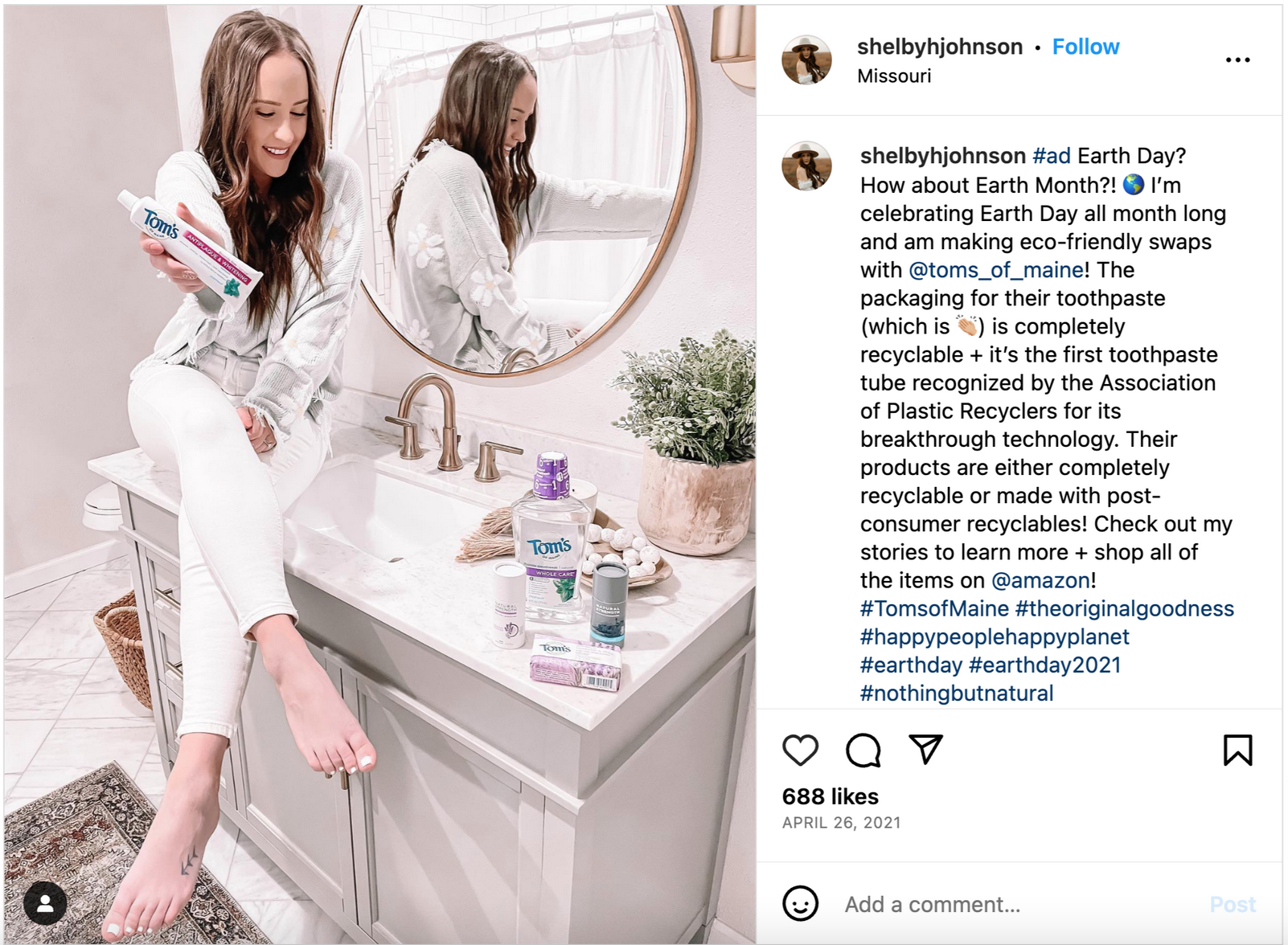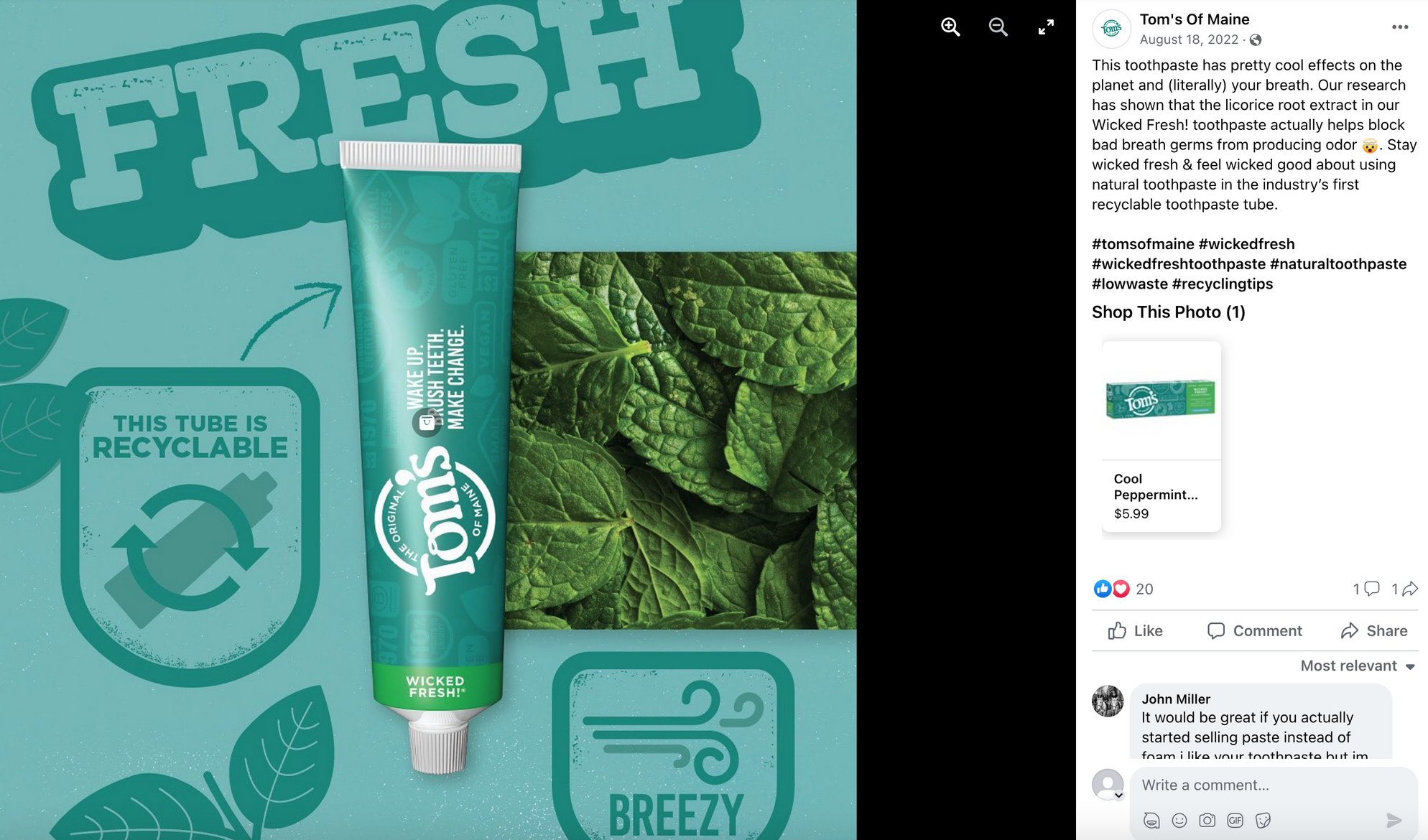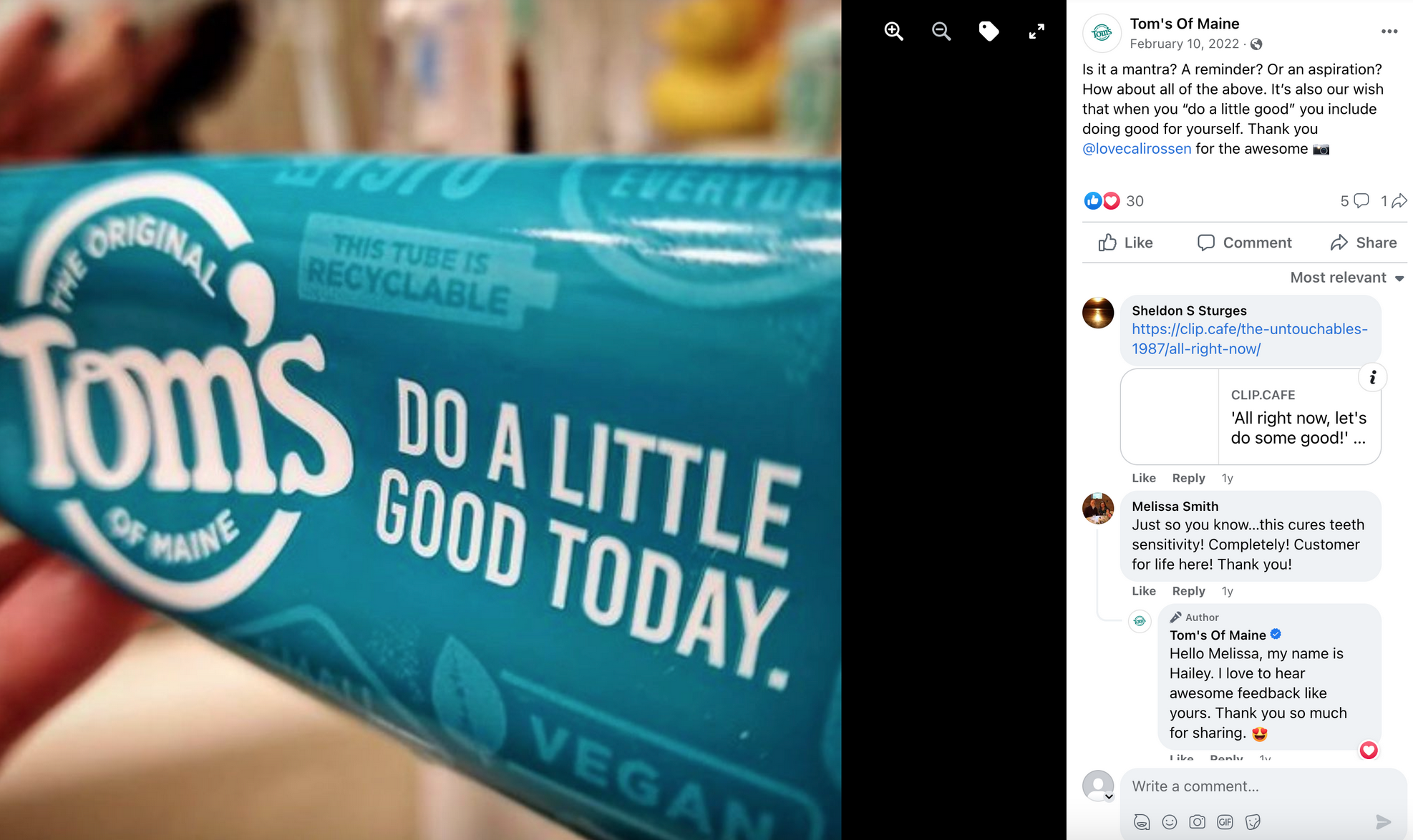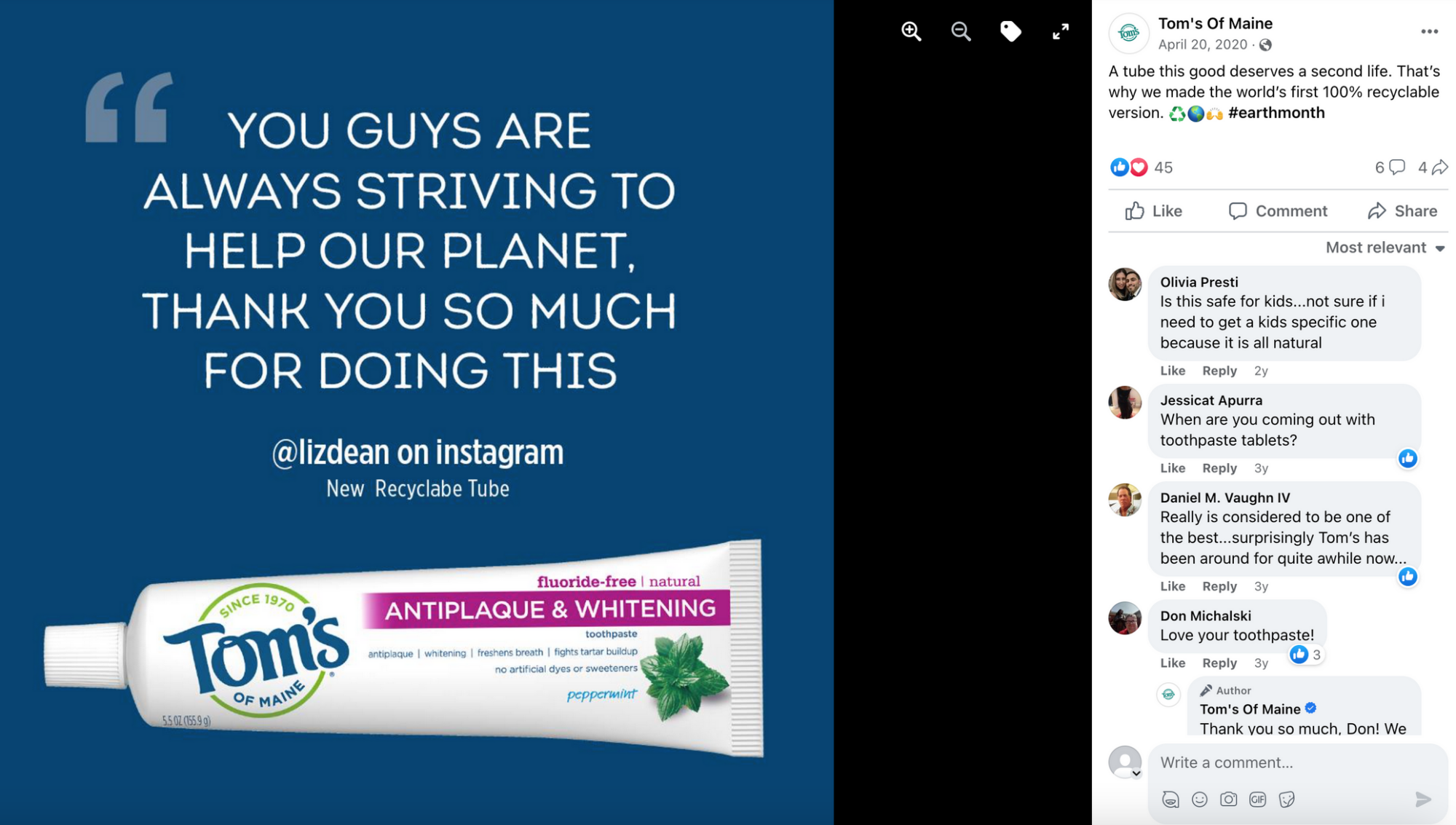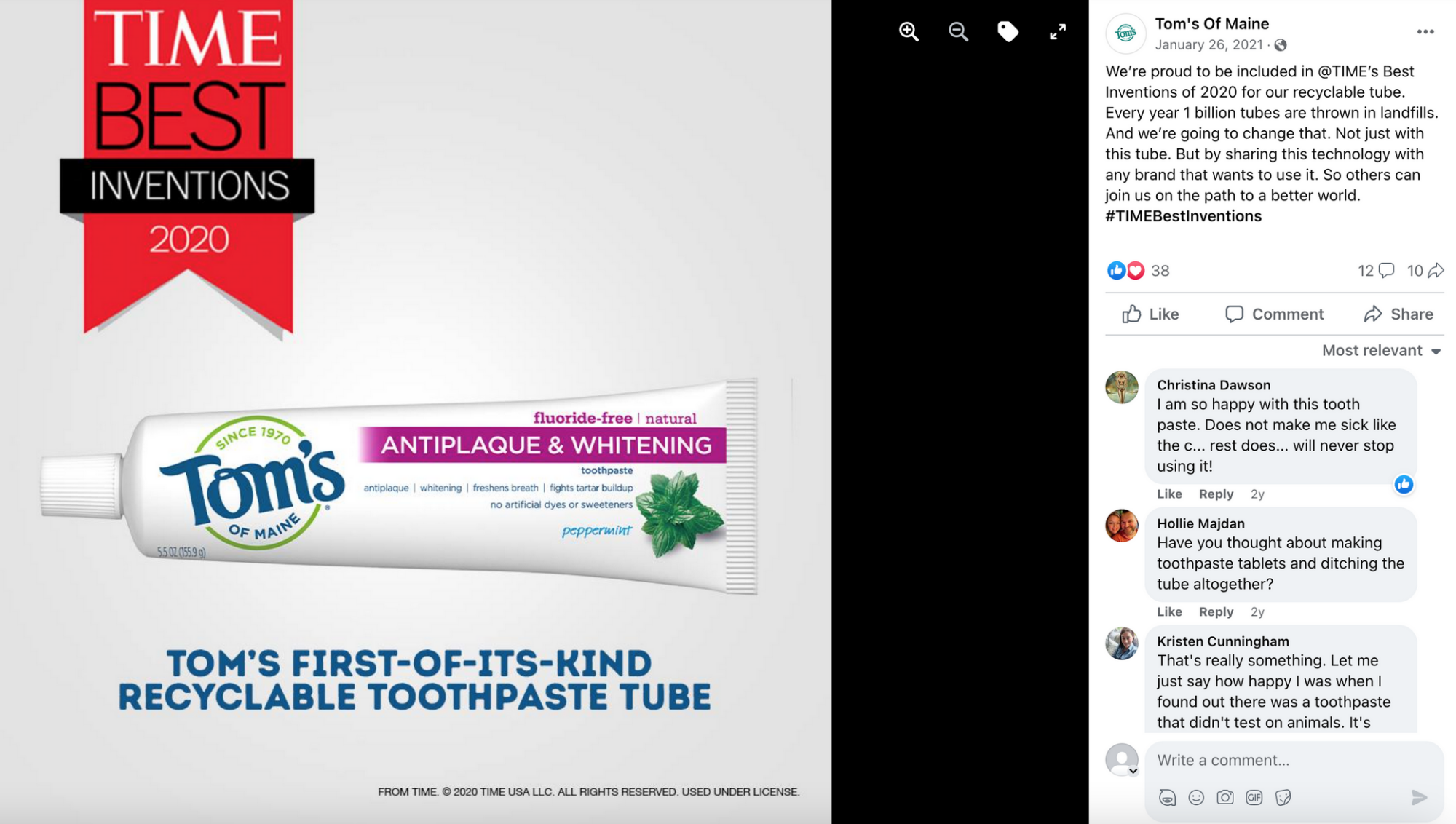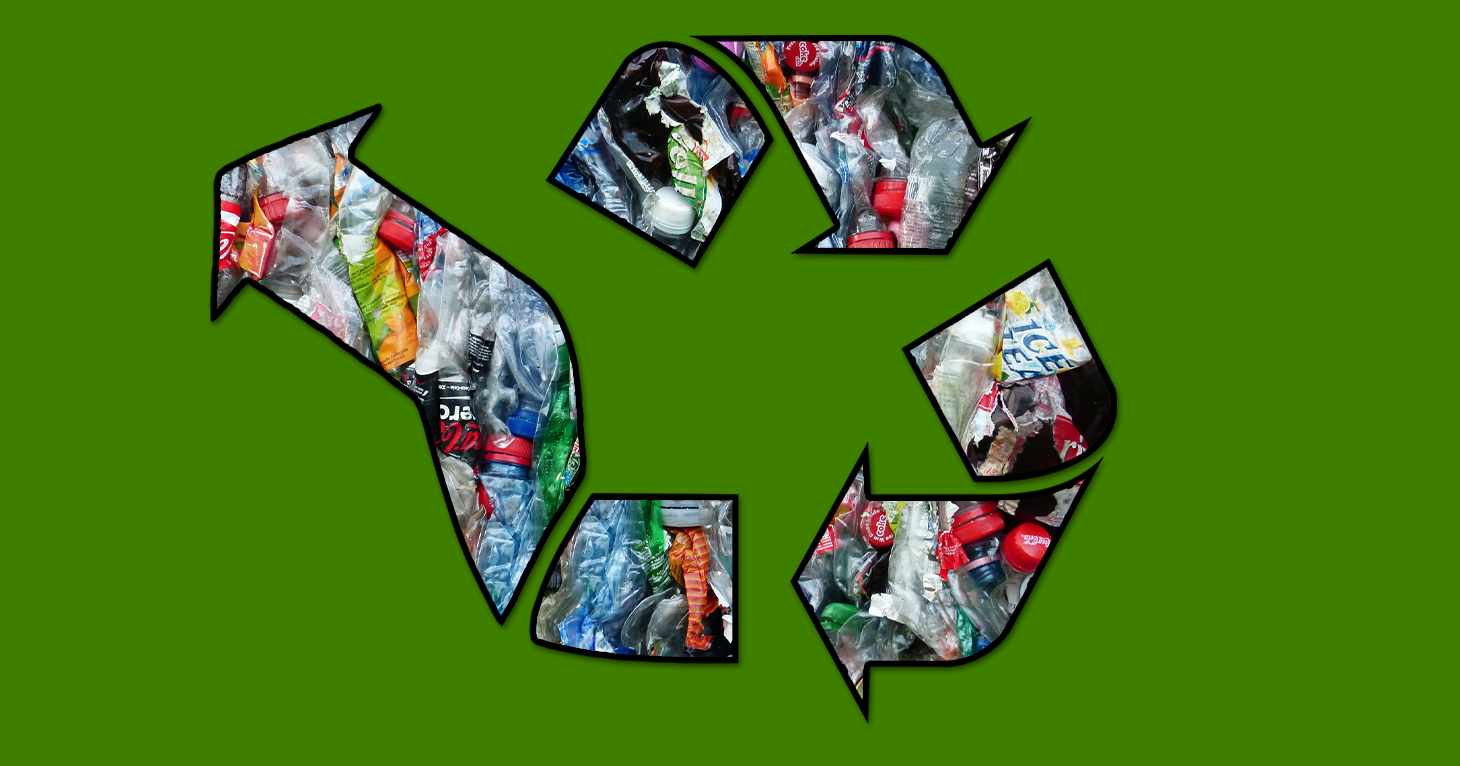
Colgate, Tom’s of Maine Need to Brush Up on What ‘Recyclable’ Means to Consumers
TINA.org files greenwashing complaints against eco-friendly toothpaste brand.
In early 2020, in response to consumer demand for sustainable products, Tom’s of Maine unveiled “the first of its kind recyclable toothpaste tube.”
“You asked…We Delivered!” Tom’s now proclaims on boxes of its toothpaste, where consumers can also see phrases like “Happy Planet Happy People,” “Doing Good Everyday” and “Sustainable Business Practices.”
Tom’s advertises its “recyclable” toothpaste tube on its website as well as on its YouTube, Instagram and Facebook pages, among other places. A sampling follows.
The values-oriented, eco-friendly brand claims that its recyclable tube helps “minimize our impact on the environment,” leading to “real change.” But the reality isn’t nearly as green. In fact, by advertising its toothpaste tube as recyclable, Tom’s is engaging in greenwashing.
A majority of consumers believe that “recyclable” means that a product will be recycled most of the time. And 82 percent of consumers say it is dishonest to label a product recyclable if it won’t really be recycled. In addition, 81 percent of consumers think the chasing arrows symbol, which also appears on the toothpaste’s packaging, among other marketing materials, means a product could definitely be recycled. Not to mention Tom’s tells consumers that all they need to do is toss the tube in their home recycling bin if their community accepts #2 HDPE plastic and it will get recycled.
But while Tom’s toothpaste tube is technically recyclable in that it is made of a kind of recyclable plastic – HDPE stands for high-density polyethylene, one of the most widely recycled types of plastic – a TINA.org investigation found that the tube is not actually getting recycled. This is due to a number of factors, including its small size, flat shape and similarity in appearance to other non-recyclable products.
The result? When the tube arrives at a recycling facility, it’s not being sorted for recycling but rather designated for the landfill. And where’s the environmental benefit in that?
On Monday, TINA.org filed complaints with the FTC and attorneys general in California and Connecticut urging the regulators to open an investigation into Tom’s and its parent company Colgate-Palmolive for the deceptive marketing of “recyclable” toothpaste tubes. TINA.org found that Colgate toothpaste tubes, which are made with the same HDPE plastic, are similarly marketed as recyclable. TINA.org wrote in its complaint letters, which cite violations of state and federal laws:
Consumer demand for greener products and services is on the rise with a majority of U.S. consumers preferring environmentally friendly products, and nearly two-thirds of them willing to pay more for such products. At the same time, it is incredibly difficult for consumers to verify the accuracy of eco-friendly marketing claims. As such, consumers are generally at the mercy of brands’ representations when seeking environmentally friendly products.
Colgate is no stranger to allegations of greenwashing. In 2020, Colgate was among several multinational brands sued by the nonprofit Earth Island Institute for allegedly polluting the oceans with millions of tons of plastic despite representations that the company is an environmentally friendly brand.
Colgate knows that its tubes, while recyclable in theory, are not recycled in practice.
In November 2020, a Colgate representative admitted in an interview with a reporter at a recycling innovation fair hosted by the EPA that the tube isn’t appropriate for curbside recycling. Still, the representative defended the company’s use of the term “recyclable,” saying, “We don’t think that we’re being misleading because technically it is recyclable.”
Meanwhile, Colgate states on its website:
We’ve been sharing the technology and partnering with third parties to help turn “recyclable” into widely accepted and “recycled.” During this transition phase, however, your community may not yet accept tubes for recycling. Consumers should check with their local community programs.
But this website disclaimer is completely at odds with the overall marketing message of “recyclable” toothpaste tubes.

The FTC’s Green Guides echo consumer perceptions surrounding recyclable claims.
The Guides, which are designed to help marketers avoid making misleading environmental claims, state that products should not be marketed as “recyclable” unless the products “can be collected, separated, or otherwise recovered from the waste stream through an established recycling program for reuse or use in manufacturing or assembling another item.”
That’s simply not happening with Tom’s or Colgate toothpaste tubes.
The Guides are currently under review and among the things the FTC has asked stakeholders to weigh in on are recyclable claims for products that are ultimately not recycled. In May, the FTC held a workshop on recyclable claims where speakers representing the plastics industry reiterated its position that as long as a product is recyclable in theory, it’s appropriate to market the product as recyclable, even if it’s ultimately not recycled. (Following the workshop, TINA.org filed a comment with the FTC arguing that this “recyclable in theory” position does not align with how consumers interpret recyclable claims or with the FTC’s Green Guides.)
But there was one noteworthy exchange between an FTC attorney and the chief operating officer and senior vice president of regulatory affairs for the National Waste & Recycling Association regarding the recyclability of toothpaste tubes specifically. It ended with the NWRA executive revealing that toothpaste tubes are not being recycled.
“I don’t know of a facility that accepts tubes,” she said.
Find more of our coverage on recyclable claims here.
You Might Be Interested In
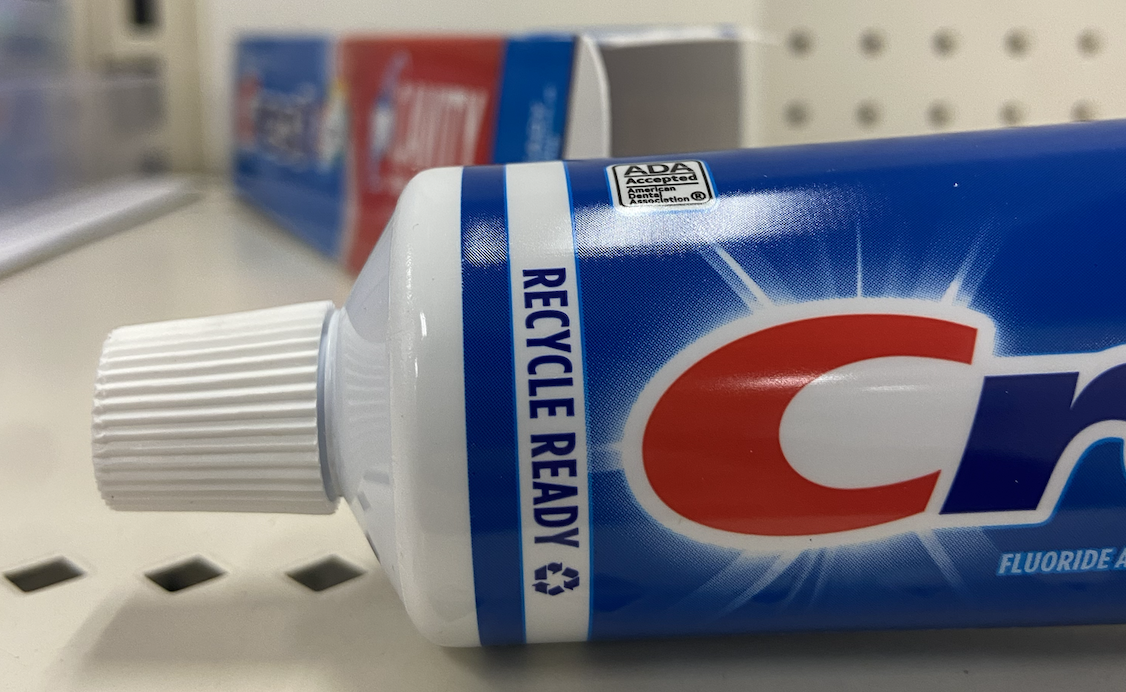
Crest ‘Recycle Ready’ Toothpaste Tubes
The bottom line? Toothpaste tubes aren’t generally getting recycled.
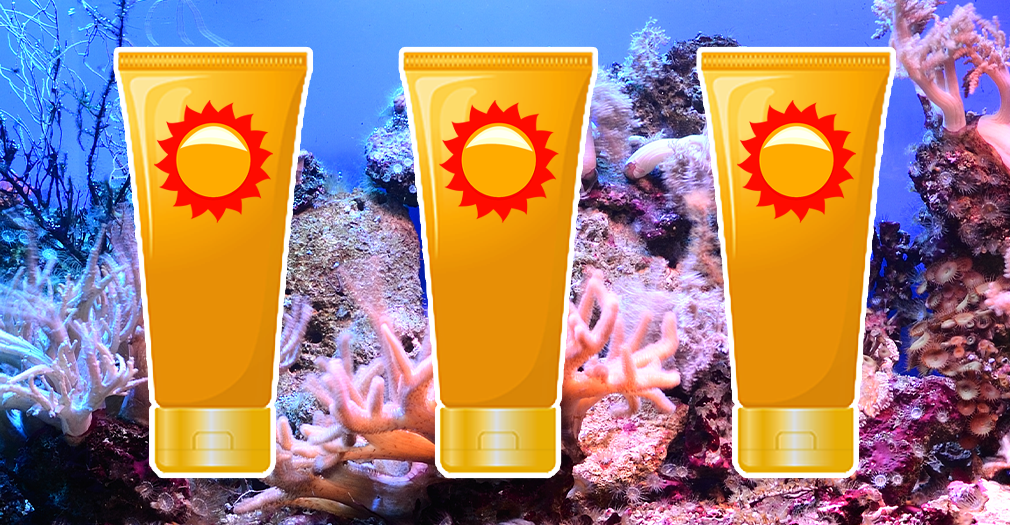
CATrends: ‘Reef Friendly’ or ‘Reef Conscious’ Sunscreens
Lawsuits allege products contain ingredients harmful to coral reefs and marine life.
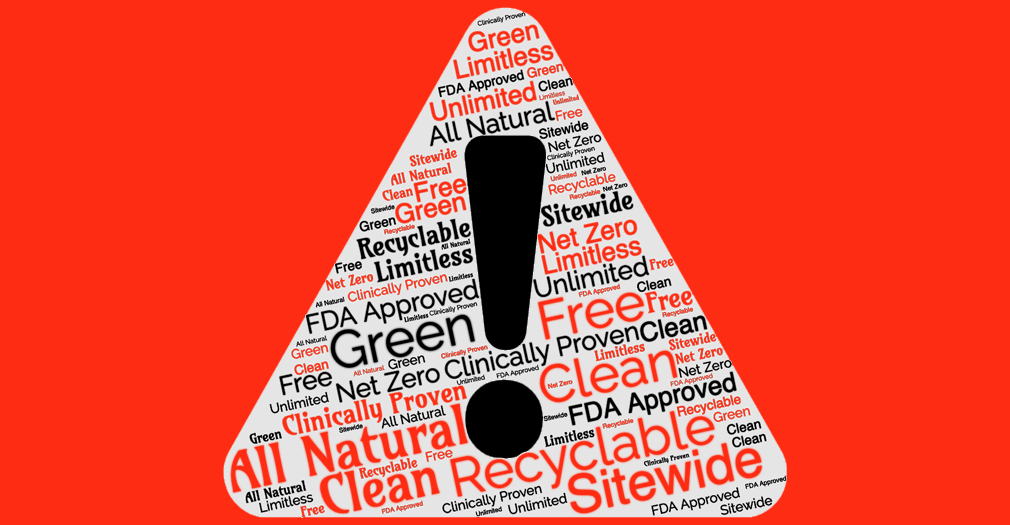
April Fools: How Some Companies Prank Consumers with Common Marketing Terms
These definitions are a joke.
